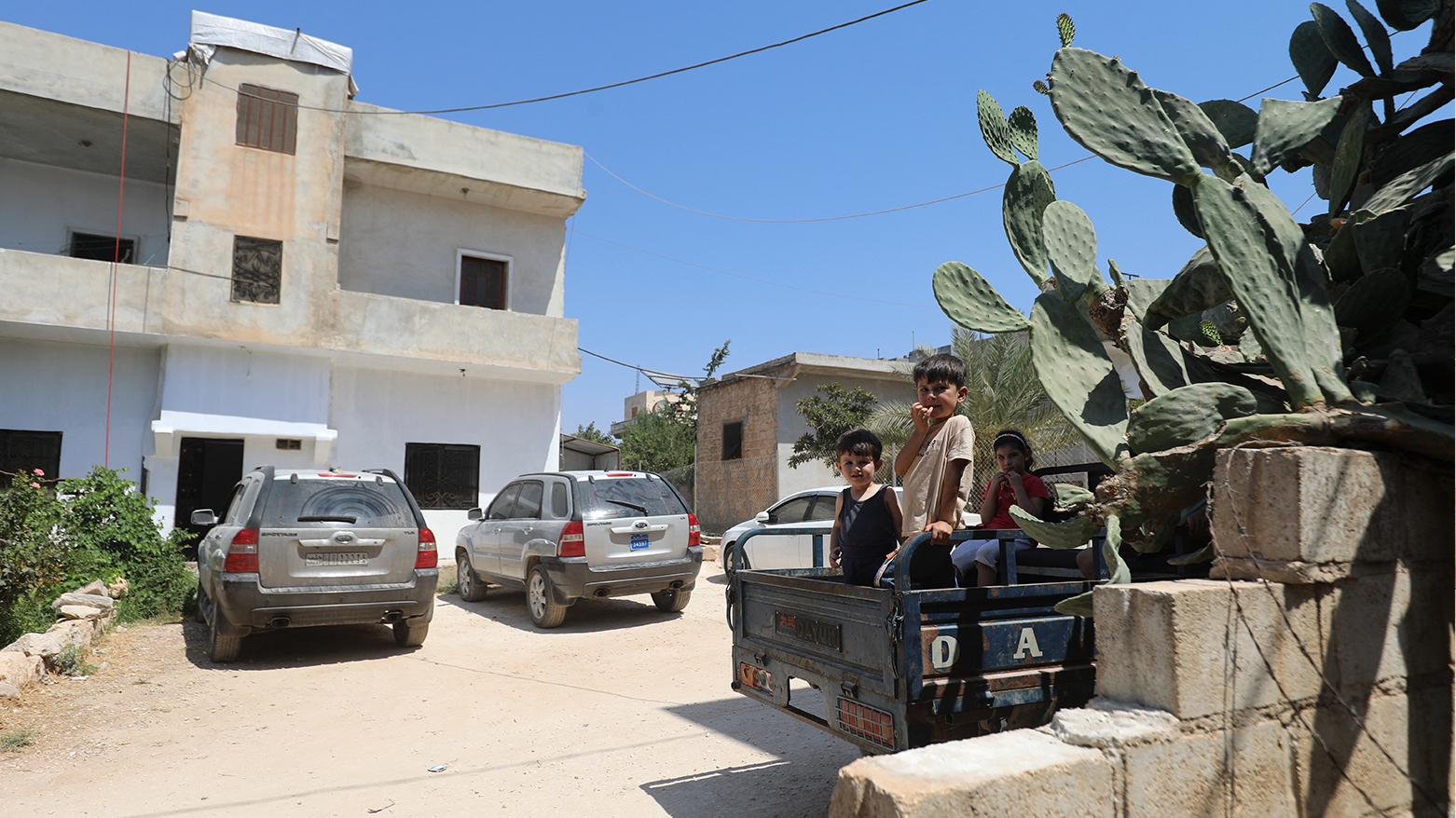Syria says US-led coalition killed senior IS leader in Idlib raid
US-led coalition killed senior IS leader Salah Numan in Idlib raid, Syrian state media reports. The Iraqi national was targeted in an Atme operation based on Iraqi intelligence

ERBIL (Kurdistan24) – Syrian state television reported on Wednesday that a senior Islamic State (IS) leader was killed in the country’s northwest during a US-led coalition operation.
“Coalition forces carried out an air drop targeting a house in the town of Atme,” state media cited a security source as saying, identifying the target as Iraqi national Salah Numan, also known as Ali. The source described him as “one of the most dangerous men wanted for his involvement in activating and mobilising IS cells in Syria.”
According to the report, Numan was killed after attempting to escape by jumping from a balcony. The operation also led to the arrest of his wives.
The coalition has not issued a statement on the operation. However, three witnesses, including the owner of the building where Numan resided, confirmed to AFP that the raid occurred after midnight and involved both aircraft and gunfire.
Building owner Mohammed al-Sheikh said coalition forces surrounded the area at around 2:30 a.m., ordering him and his family to surrender. “The translator’s accent was Iraqi,” Sheikh recalled. He added that his family was blindfolded, fingerprinted, and temporarily taken away before being released.
“I rented the house to Numan via a real estate agency and had no connection to him,” he said. Neighbour Abdel-Qader al-Sheikh stated that Numan had lived in the building for two years but kept a low profile.
An Iraqi security source told AFP that the operation was based on Iraqi intelligence. He further noted that Numan was the brother of a top IS leader killed in a coalition strike in Deir Ezzor province in 2020.
The raid has once again drawn attention to Atme, a border town located just 200 meters from Turkey. Once a small rural village, it has become a hub for displaced Syrians and a known hideout for extremist groups.
A source speaking to Kurdistan24, who requested anonymity, explained that Atme lies on a key road linking Idlib to Afrin. Following the War in Syria, the area has been used by opposition factions—many backed by foreign powers—as a center for planning attacks against Syrian government positions.
As Syria’s conflict deepened, fighters in Atme frequently shifted allegiances, often based on financial incentives rather than ideology. By 2013, Islamic State (then known as ISIS in Iraq and Syria) had established Islamic courts in the town. Extremist behavior soon escalated, with militants carrying out attacks against Kurds in Afrin (Western Kurdistan), including the destruction of a 150-year-old tree revered by the Ezidi minority.
In 2014, IS struck a deal with the Islamist group Ahrar al-Sham, exchanging its positions in Idlib for control of Raqqa, which soon became the group’s self-declared capital. Ahrar al-Sham later joined the Army of Conquest, an opposition coalition that included the al-Qaeda affiliate Jabhat al-Nusra.
By 2015, the Army of Conquest seized Idlib from Syrian government forces. Jabhat al-Nusra later rebranded as Hayat Tahrir al-Sham (HTS) and turned against its former allies, ultimately consolidating control over Idlib province.
Although IS lost its territorial strongholds in Syria and Iraq by 2019, its operatives continue to maintain a presence, particularly in Syria’s central desert regions. The group has relied on sleeper cells and covert networks across the northwest, often targeted by US-led coalition raids.
In June, the coalition announced a separate operation in Idlib that killed another IS official. Several former leaders of the group have been eliminated in the province in recent years, underscoring its continued role as a refuge for jihadist figures.
Wednesday’s killing of Salah Numan highlights both the ongoing reach of IS networks in northwest Syria and the persistent challenge posed by Atme’s transformation from a rural border village into a stronghold for extremist operations.
